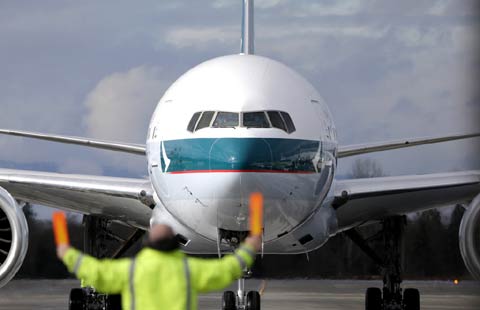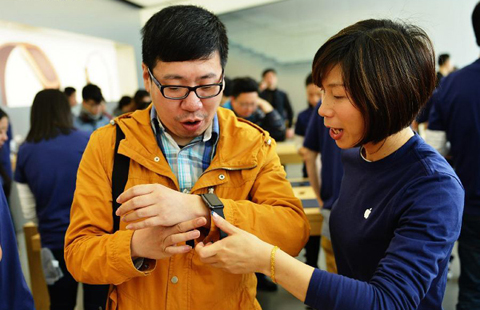Longping to stop selling super-hybrid rice variety
By LYU CHANG/ZHONG NAN (China Daily) Updated: 2015-04-14 11:06Yuan Longping High-Tech Agriculture Co Ltd said on Monday that it would stop selling its hybrid rice variety "Liangyou 0293", following a massive crop failure in Anhui province in eastern China, where it was largely cultivated.
"Sales of the 'Liangyou 0293' variety fetched about 7 million yuan ($1.1 million) for the company last year. The latest move is certain to hit profit this year," the listed company, known as Longping High-Tech, said in a regulatory filing.
More than 667 hectares of rice fields in six cities in Anhui province suffered low-yields or even outright crop failure last October due to rice blast, a serious disease caused by the imperfect fungus, according to the provincial seed management station.
Some counties such as Wuhe, one of the rice-producing areas, were hit hard with the yield of rice plummeting to 50 kilograms per mu (0.06 hectare) or to even none, from the expected 500 kilograms.
"I did my best but only a few bags of rice were harvested," said Wang Peijie, a local farmer. "It is almost nothing."
Local farmers said misleading advertisements were to blame for their heavy losses.
On the packages of seeds sold to farmers, the ad claimed the strain had a resistance of 5.6 grades, which indicates an incidence rate of only 25 percent, but inside, a piece of paper showed that the seeds had a resistance of 9 grades, suggesting the possibility of catching a disease is as high as 100 percent, a report from the Guangzhou-based Southern Weekly said.
However, Longping High-Tech said that it was mainly the natural conditions including low temperatures and rains in the rice-growing regions that had led to the rice blast outbreak.
"The variety has been grown in the region for six years, and during the period rice blast had never occurred," according to the statement.
"We are sorry for the losses to farmers ... and insurance companies will take care of that."
In July and August, the average temperature in Anhui was only 26.2 C, the lowest since 1994, the company said.
The affected hybrid-rice strain, "Liangyou 0293", is one of the products developed by the company founded in 1999, which distributes hybrid rice seeds and engages in research of hybrid rice.
China launched an initiative to cultivate super high-yield hybrid-rice in the 1990s in an effort to feed 20 percent of the world population with only 7 percent of its arable land.
Yuan Longping, the "father of hybrid rice", was designated as leader of the research team.
Ding Lixin, a researcher at the Chinese Academy of Agricultural Sciences in Beijing, told China Daily that grain security is a top priority for China, so it is important for seed companies to keep farmers abreast about hybrid varieties' susceptibility to rice blast.
"Measures including weather alerts and breeding guidance for large farms are necessary, and should be put into the standard book from a long-term perspective," he said.
To solve the problems in Anhui province, the government should also consider increasing its rice import quota this year to offset the output loss and give people more confidence about grain security as well as allocate rice from State reserves to stabilize prices, said Ding.
"This will also buy some time for the farmlands in the region to recover and improve, especially after suffering severe production failure," he said.
- Audi's sales figures in March hit new single-month record
- Race is to the swift in winning online customers
- UAE can play unique role in the "Belt and Road" initiatives
- Australia supports proposed Qantas-China Eastern Airlines alliance
- World Water Council, OECD call for global action on financing water infrastructure
- We are building the best highway in Angola
- China's rail freight volume down 9%
- Laying foundations for a successful AIIB

















